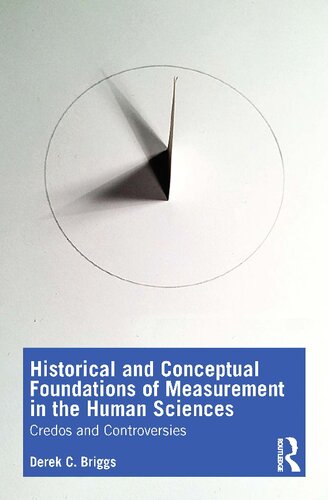

Most ebook files are in PDF format, so you can easily read them using various software such as Foxit Reader or directly on the Google Chrome browser.
Some ebook files are released by publishers in other formats such as .awz, .mobi, .epub, .fb2, etc. You may need to install specific software to read these formats on mobile/PC, such as Calibre.
Please read the tutorial at this link: https://ebookbell.com/faq
We offer FREE conversion to the popular formats you request; however, this may take some time. Therefore, right after payment, please email us, and we will try to provide the service as quickly as possible.
For some exceptional file formats or broken links (if any), please refrain from opening any disputes. Instead, email us first, and we will try to assist within a maximum of 6 hours.
EbookBell Team

4.3
88 reviewsHistorical and Conceptual Foundations of Measurement in the Human Sciences explores the assessment and measurement of nonphysical attributes that define human beings: abilities, personalities, attitudes, dispositions, and values.
The proposition that human attributes are measurable remains controversial, as do the ideas and innovations of the six historical figures―Gustav Fechner, Francis Galton, Alfred Binet, Charles Spearman, Louis Thurstone, and S. S. Stevens―at the heart of this book. Across 10 rich, elaborative chapters, readers are introduced to the origins of educational and psychological scaling, mental testing, classical test theory, factor analysis, and diagnostic classification and to controversies spanning the quantity objection, the role of measurement in promoting eugenics, theories of intelligence, the measurement of attitudes, and beyond.
Graduate students, researchers, and professionals in educational measurement and psychometrics will emerge with a deeper appreciation for both the challenges and the affordances of measurement in quantitative research.